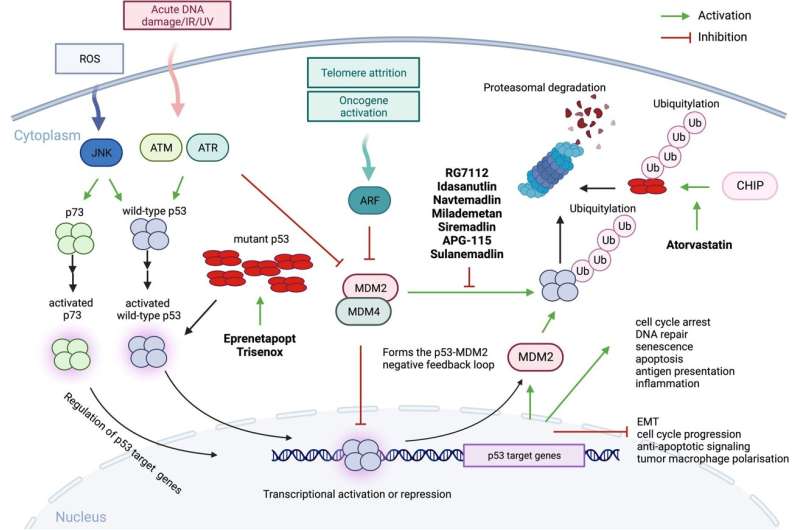This article has been reviewed according to Science X's editorial process and policies. Editors have highlighted the following attributes while ensuring the content's credibility:
fact-checked
trusted source
proofread
New review on p53 biology and reactivation in blood cancers

In a recently published review in the journal Biomarker Research, Joanna Zawacka, Docent at the department of Oncology-Pathology discusses our current understanding of p53 biology in myelodysplastic syndrome (MDS) and acute myeloid leukemia (AML).
MDS and AML are cognate, clonal hematological neoplasms and have variable outcomes despite the recent, successful implementation of targeted therapies.
However, the hope for improved outcomes might be in the reactivation of the p53 protein, a key player in cancer suppression.
The p53 protein, is a tumor suppressor often inactivated in cancers by gene mutations or the inhibition by overexpressed MDM2 and MDM4(X). Pharmacological reactivation of wild-type p53 protein, or restoring the mutant version to its functional form, can significantly impede cancer progression.
The review describes the clinical trials that are underway to test p53 reactivating drugs in MDS and AML patients and emphasizes the importance of further research to refine these therapeutic strategies.
More information: Joanna E. Zawacka, p53 biology and reactivation for improved therapy in MDS and AML, Biomarker Research (2024). DOI: 10.1186/s40364-024-00579-9


















